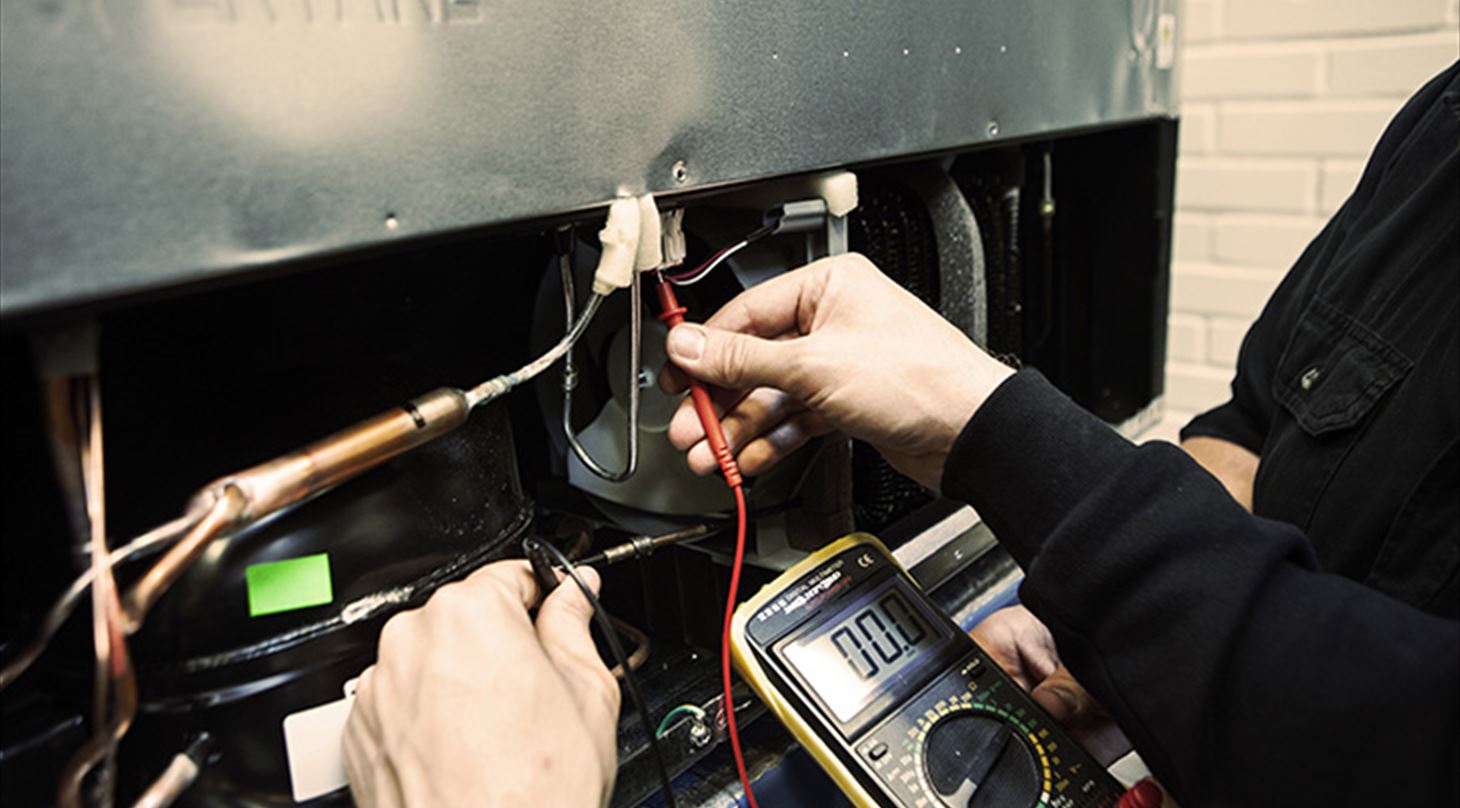
’Fingerprints’ of energy optimization in the catering industry
Project start April 2018. Expected completion date Oktober 2021.
Purpose of project
The overall purpose of the project is to develop an enhanced monitoring system of walk-in cold rooms or freezer rooms in the catering industry to detect hidden potentials for possible energy savings, behavior regulation, proactive maintenance, improved food quality, reduction of food-waste, and an improved work environment.
Objectives
The catering industry is energy intensive, and the palette of energy-consuming units is wide ranging. Furthermore, the catering industry is a busy industry that currently does not focus much on energy savings.
By analyzing data collected from walk-in cold rooms and freezer rooms located at the premises of five selected hosts, the project is going to detect ‘fingerprints’ of possible energy saving initiatives, control of behavior, and proactive maintenance.
The project is expected to lead to annual electricity savings of 28.6 GWh in the catering industry. The results of the project are of a generic character, and it will, therefore, be possible to ‘copy’ the results to other applications and industries – such as hotels, canteens, butchers, and bakers.
The project starts with an analysis of existing data collected from walk-in cold rooms and freezer rooms in a previous project; Mobile Online Measurements of Electricity Consumption in the Catering Industry. This initial analysis provides the basis for a targeted data collection from the storages located at the premises of the five selected hosts.
The five hosts (restaurants) are selected and the measuring equipment is installed. The data, which is to be collected from the hosts’ walk-in cold rooms or freezer rooms, is going to consist of e.g. temperature, humidity, door openings, electricity consumption, and patterns. The monitoring system will track certain ‘fingerprints’, namely inappropriate incidents, procedures, or profiles in the collected data.
Based on the collected data, it will be decided which ’fingerprints’ to implement in the enhanced monitoring system of walk-in cold rooms and freezer rooms, and subsequently prototypes will be developed for the enhanced monitoring system.
The prototypes will be installed in the same walk-in cold rooms and freeze rooms where the measuring equipment was previously installed. The prototypes are tested over a period of six months. The monitoring will be done automatically based on e.g. pattern recognition and simple machine learning.
Activities
The project is divided into the following phases:
- Analysis of existing data collected by R&M-EL and the City of Copenhagen in a recently completed project; Mobile Online Measurements of the Electricity Consumption in the Catering Industry'. The purpose of the analysis is to gain experience with this type of data and to get input on which measurements are necessary later in the project as well as to find the first useful ‘fingerprints’.
- Selection of hosts: Five hosts (restaurants) are selected for the installation of measuring equipment. The hosts are selected so that different factors such as technical variations, different uses, sizes etc. can be identified.
- Knowledge gathering, installation, and calibration: The measuring equipment is calibrated and installed in the selected cold rooms and freezer rooms. The installed sensors/meters will i.a. measure temperature, humidity, PIR, proximity, and effect (electricity). Interviews with the hosts are planned to obtain qualitative data on opening hours, the use of the cold rooms and freezer rooms, the applied set points, and the responsibilities and duties of the employees.
- Measurement period: Data is collected and quality-assured. The measuring equipment remains installed on the storage units in order to be able to evaluate the performance of the prototypes later in the project.
- Data processing: Data is analyzed to find 'fingerprints' for implementation in the enhanced monitoring system. Furthermore, the project partners will be working to determine how the ‘fingerprints’ can be converted into an applicable format and continuously analyzed by the monitoring unit. It will also be investigated how the identified ‘fingerprints’ can be translated into information/actions, which the end users can deal with.
- Development of prototype: A prototype for the enhanced monitoring system is developed, and the project partners will cooperate with the hosts on finding the best method of communicating between the prototypes and the hosts.
- Functional analysis of the prototype: The prototypes are installed and tested over a period of six months. Possible errors are continuously corrected.
- Evaluation and experience gathering: The five prototypes are evaluated. It is investigated whether the prototype has detected the events, which have occurred during the six months of testing, and whether the restaurant owners have been able to use the alarms to achieve energy savings in the operation, control of behavior, and proactive maintenance. The possibility of derived effects such as reduction of food waste is investigated as well. This is done by comparing the data collected by the measuring equipment installed at the beginning of the project with the interaction between the prototype and the host and its employees. If 'fingerprints' are observed, which the prototype has not responded to, it is investigated why this is the case to calibrate the prototype.
- Reporting and theme day: The results of the project are reported and a conference will be held for among others the Monitoring Group, Danish restaurant owners, refrigeration technicians, and relevant suppliers to the catering industry.
Participants
- Danish Technological Institute – Esben Vendelbo Foged (project manager)
- Sensohive
- R&M EL
- AK-Centralen
- The City of Copenhagen.
Funding
The project is funded by the ELFORSK programme.